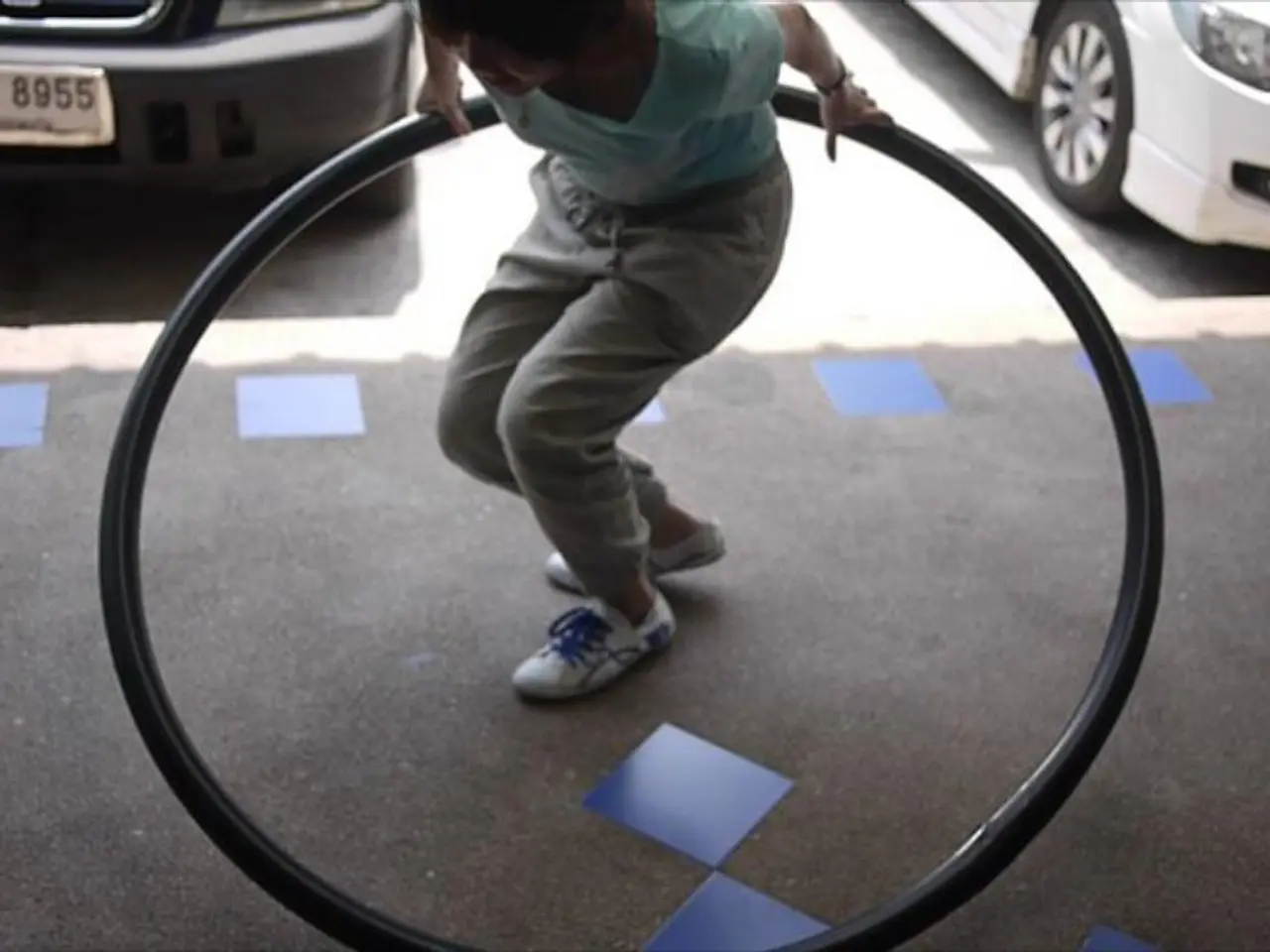Engineers and Medical Professionals Unite: Unveiling Toyota's Rehab Robot's Development Journey
Over the past decade, Toyota's development and evolution of the Welwalk rehabilitation assist robot has made a significant impact on people with mobility issues, particularly those who have suffered strokes. This innovative robot has transformed the rehabilitation process for walking impairments, enhancing patient outcomes and contributing to society's aging population and those with disabilities.
Initially met with skepticism, the Welwalk robot has proven to be a game-changer in the field of rehabilitation. Originally designed with a "me-centered" focus in 2007, the robot's purpose was to provide "freedom of movement" for people with mobility issues. However, over time, Toyota shifted its approach to prioritizing the needs and experiences of users, aligning with President Akio Toyoda’s philosophy of working "for someone other than yourself."
The Welwalk robot is designed to assist individuals relearning how to walk after strokes or other mobility impairments by providing precise support and guidance during walking exercises. By using Welwalk, a gait close to the patient's personal goals can be created from the early stages of rehabilitation. This has been made possible through the integration of motor learning theories, which helped engineers understand the true meaning of doctors' observations.
The Welwalk robot's evolution has improved functionality, ease of use, and adaptability, enabling more effective therapy and faster recovery compared to traditional methods. By providing real-time feedback and adjustable assistance, Welwalk helps patients regain mobility more efficiently, potentially reducing recovery time and improving long-term quality of life.
Toyota's rehabilitation assist robots like Welwalk contribute to addressing mobility challenges in aging populations and those with disabilities, aligning with Toyota’s sustainability and social responsibility goals. The Welwalk WW-1000 received approval as a medical device in 2016 and started being rented out to medical institutions in 2017. A total of 94 units, including both models, are now in use around the country and have been utilized for patient rehabilitation for a cumulative total of more than 5,000 people.
Since October 2017, Toyota has been transforming from an automobile company to a mobility company. Prof. Otaka, a rehabilitation expert, hopes that when "Mobility for All" is Toyota's mission, the mission of people engaged in rehabilitation is to enable "freedom of activities for all." Prof. Yohei Otaka, who took over from Prof. Saitoh in 2019, explains that in rehabilitation, the person themselves must be actively moving for the learning process to occur.
Toyota's vision of "Mobility for All" represents its belief that "mobility" is about overcoming challenges and making dreams come true. In conventional rehabilitation, it is difficult to objectively observe the patient's walking condition due to the physiotherapist lifting the patient's body to provide support. Welwalk can assist the movement of limbs that are unable to move freely and display various information on a large monitor, aiming to help patients walk unaided.
Moreover, Welwalk makes it possible to collect various quantitative data and reproduce the same conditions each session, even if the physiotherapist is replaced. This data-driven approach allows for more effective therapy and a better understanding of the patient's progress.
Toyota continues its ongoing challenge, ensuring freedom of "mobility" and "activities" as a way to ensure happiness. The company is currently engaging in R&D towards the introduction of the next Welwalk model, aiming to remove the price barrier to using Welwalk so that it can be used by all people who need it.
In conclusion, the Welwalk robot symbolises Toyota’s successful integration of robotic technology with patient-centered rehabilitation, positively impacting people with mobility issues by improving rehabilitation effectiveness and supporting physical recovery over the past decade. This aligns with Toyota’s broader vision of supporting society through innovative assistive technologies.
The Welwalk robot, a game-changer in the field of rehabilitation, has been designed to assist individuals with medical-conditions affecting mobility, such as strokes, by providing precise support and guidance during fitness-and-exercise sessions aimed at regaining walking abilities. This has led to a more efficient learning process, as shown by the integration of motor learning theories and the collection of quantitative data, thus enhancing the effectiveness of health-and-wellness therapy. In line with Toyota's broader vision, this integration of science and technology is aimed at supporting society and enabling "freedom of activities for all," symbolizing Toyota’s successful commitment to assistive technologies.




